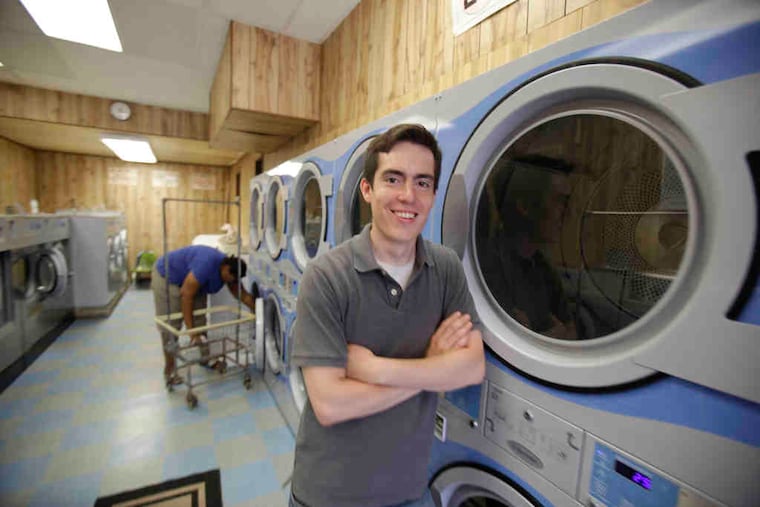Clean Slate can give Pennsylvanians a second chance
Clean Slate expansion is good for businesses, good for individuals, and good for our communities.

More than 70 million Americans — nearly one in three U.S. adults — have some form of a criminal record. For these individuals, that can mean facing restrictions to employment, housing, education, and more. In 2018, Pennsylvania came up with an innovative solution to help break down these barriers: The governor signed the nation’s first “Clean Slate” law, which automatically seals old records if a person remains crime-free for a certain period of time.
Clean Slate was hailed as a commonsense solution to a problem facing individuals across the commonwealth — and it worked. Since the law took effect, 1.2 million Pennsylvanians have benefited from the law’s automatic sealing provisions. Seven states, including Delaware, have followed our lead and passed their own Clean Slate laws to help individuals who were negatively impacted by the criminal justice system get back on their feet.
In 2010, I started my business, Wash Cycle Laundry, in Philadelphia with these folks in mind. We clean millions of pounds of dirty laundry each year for businesses ranging from local yoga studios to the federal government to Fortune 500 companies. We’re also dedicated to creating real second chances, providing not just clean laundry, but a clean slate for employees. More than half our Pennsylvania workforce is made up of people who used to be in jail, homeless, or welfare-dependent, and our retention rate is nearly twice that of the average company. Some of our staff have even undergone Homeland Security screening in order to make deliveries to secure facilities. This has never stopped us from doing the work. We’re committed to delivering the highest quality services while also helping break down the barriers facing people with criminal records.
When I first started second-chance hiring, I was shocked by how unintelligible most criminal records are. In many cases, my managers and I didn’t have a clue what we were looking at or what it meant. We weren’t experts on criminal law, and yet we had to make decisions about whether or not a record — which we couldn’t even understand — should give us cause for concern.
We made the choice to work through these obstacles and actively hire individuals with criminal records. It was the right decision for our business for two main reasons — it allowed us to tap into a pool of talent we otherwise wouldn’t have had access to, and it enabled us to align our hiring practices with our values. But it was a challenge. For many companies, that challenge might be too great.
Luckily, Harrisburg has a solution: House Bill 1826, which expands the commonwealth’s automatic record-sealing provisions. This bill would bring Pennsylvania in line with the most progressive jurisdictions, allowing drug felonies to be sealed after 10 years and reducing the waiting period for sealing misdemeanor and summary conviction records. For employers, that means expanding access to a vast, diverse, and underutilized pool of talent. It’s no wonder the Pennsylvania Chamber of Commerce is standing behind Clean Slate as a critical step to addressing the ongoing labor shortage. As companies across our state recover from the pandemic, automatic record sealing is a key solution to getting more people back to work.
The impact on these individuals can hardly be overstated. A study in Michigan found that annual wages increased by an average of 22% in the first year after record sealing. The benefits are even greater for people of color, who are both overrepresented in the justice system and who are more often negatively impacted by a criminal record than their white counterparts. These benefits extend to families. Compared with their peers, children with jobless parents have lower high school graduation rates, lower college attendance, lower adult earnings, and a greater reliance on public aid in adulthood. By making it easier for adults to reenter the workforce, automatic record sealing helps to give Pennsylvania’s children the chances they deserve.
Clean Slate also makes our communities safer. Post-release employment is one of the biggest factors in determining whether or not someone will re-offend. Data show that five years after having a record sealed, individuals with criminal records are less likely to commit a new crime than the general population. There are significant economic benefits as well. Estimates indicate that the United States loses approximately $80 billion in GDP each year due to the underemployment of people with records. By getting deserving and hardworking individuals into jobs, Clean Slate can provide a major boost to our economy.
In 2018, our legislature took action to make Pennsylvania fairer, safer, and more prosperous. Now we have the opportunity to do it again. Clean Slate expansion is good for businesses, good for individuals, and good for our communities. We should call on Harrisburg to pass it now.
Gabriel Mandujano is the founder and CEO of Wash Cycle Laundry, a commercial laundry service and social enterprise dedicated to creating jobs and second chances for people overcoming histories of homelessness, incarceration, and more. Wash Cycle Laundry serves businesses of all sizes in Philadelphia, Boston, Baltimore, and Washington, D.C.